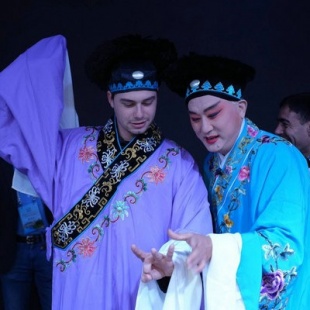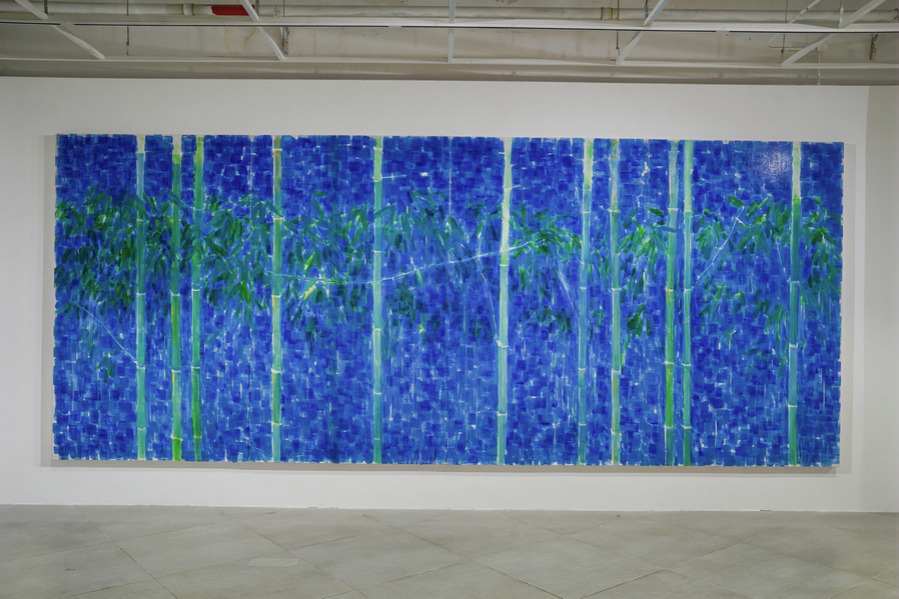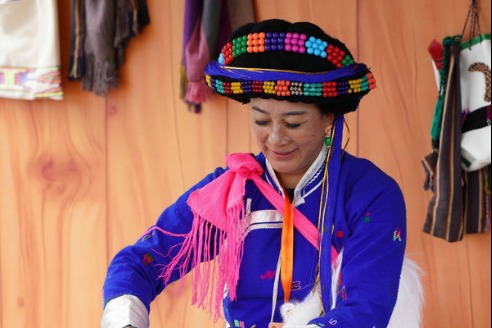Expats find romance and inheritance in Zhenjiang

Zhenjiang, a city in Jiangsu province, clings to its profound heritage, both architecturally and culturally. For many visitors, the city is often a brief riverside stay before heading to other places, but not for people having strolled her streets and water lanes.
From Dec 14 to 15, more than a dozen of expats from the United States, the United Kingdom, France, Brazil and India arrived in Zhenjiang, wanting to learn the local arts with their own hands and delving into its modernized downtown.
Gliding along in the Yangtze River, ancient poets, explorers and officials came ashore at what is known as the Xijin Ferry Site nowadays, the city's historical center. Located at the foothill of Yuntai Mountain, the site has phased into an ancient-themed street that stages The Legend of the White Snake, one of the four China's great folktales.
Since the original story was published 400 years ago, it has been adapted into operas, animations and TV dramas.
The first act of the opera, portrayed by Zhenjiang Kangsheng Opera Society, captivated expats as they took memorable photos and tried on the characters' costumes. The pageantry was rendered by experienced masters, while their young students, a new generation artists, helped prepare behind stages.
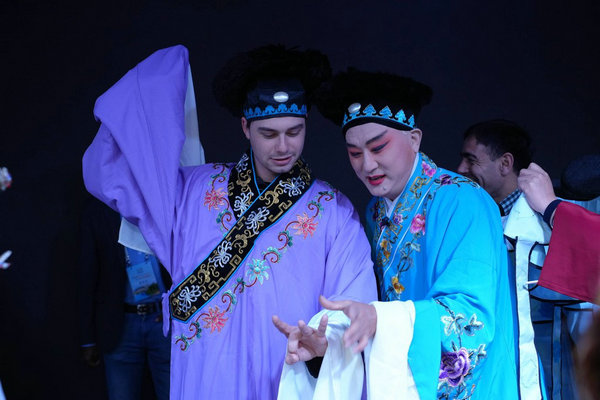
The first act depicted how Xu Xian as a young physician met Bai Suzhen, a white snake spirit pretending to be a human, in West Lake. After marriage, they moved to Zhenjiang and started a pharmaceutical shop, distributing medicines during an epidemic. The couple experienced separation, ailments, confession and other turmoil together, with their hearts always linked to face the challenges.
The Zhenjiang Folk Culture Art Museum, a two-story, illuminated gallery displaying folk artworks from Zhenjiang and nearby cities, is where expats find the city's artistic atmosphere brimming. Expats tried Ni-jiaojiao, a clay whistle molded into the shape of animals and other lovable things for children to play with, carving the pattern of plum blossom symbolizing hope and vitality.
"I believe our cultural heritage needs to be diversified and modernized. Apart from preserving its inheritance for generations, we should use these treasures for cultural exchange," said Zhou Baokang, a master and inheritor of Ni-jiaojiao.
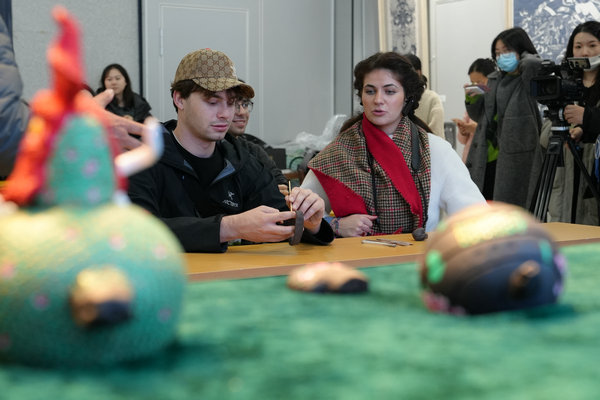
Every city in Jiangsu province, 13 in all, has their own culinary sense. Zhenjiang takes pride in its pod-lid noodles. Slim loafs of dough are meticulously kneaded and then poured into a pot with a wooden lid floating on the soup like lovebirds weathering with each other on a swinging boat. The refreshing noodles and tender meat tastes delectable, but it's up in the heaven when dipping the beef in the local fermented vinegar.
A whirlwind visit can only offer a glimpse of the city's historical, cultural and economic landscape, thus Zhenjiang beckons all visitors with an extended art and food-loving trip that presents its cultural depth at every lane.


